Abhinav Lal, ThinkDigit.com
A sneak peek into the latest happenings in the world of gadgets, gaming and technology.
Just like it promised, Samsung has unveiled the official successor to the Galaxy S the Galaxy S II (I9100) in a pre-MWC announcement. It also unveiled the Galaxy Tab II, of which we have more coverage later on in this article, on the next page.
Featuring a new type of display technology Super AMOLED Plus the Galaxy S II has a 4.3-inch Gorilla Glass covered screen (800x480)that Samsung assures the world is much better than the IPS panel (or Retina Display) of the iPhone 4. The phone's screen bezel is also extremely thin when compared to the massive display.
Also new, is the use of a dual-core CPU as the brains for the unit. Samsung has not officially mentioned what this processor is, but it is apparently not the Nvidia Tegra 2 SoC, instead, it is one of Samsung's self-developed Orion SoC processors, which recently received the Exynos branding. According to reports, it is probably the Exynos 4210 dual-core SoC that was just previewed a short while ago. It also has a solid 1GB of RAM onboard.
The Samsung Galaxy S II is also making headlines as the thinnest smartphone in the world, measuring in at 8.49 mm in width (we assume this is at its thinnest point). This makes it even thinner than the previous slim champs the Sony Ericsson Xperia Arc, and the LG Optimus Black. The ultra-slim quotient shoots through the roof, when one looks at the measly weight of the phone 116 grams.
The Galaxy S II, just as expected, runs on Gingerbread, and touts a new and improved UI customization TouchWiz 4.0. The new interface will also have four new hubs, called Reader, Game, Music, and Social, for specialized UI interactions. There's also a 3-axis gyroscope onboard, for enhanced gaming interactivity. An NFC (Near Field Communication) chipset will also be available in some models. Also to be noted, is the 21Mbps HSPDA connectivity mentioned.
Samsung has also put in some new security features, trying to attract enterprise users to their fold. Features include remote lock, remote wipe, remote app shutdown, and remote locator. Before you take a look at the specifications below, know that the Galaxy S II has an 8MP camera that's capable of 1080p video recording, and, also sports a 2MP front-facing camera for video-calling.
The Samsung Galaxy S II is only scheduled to release in parts of Europe and Asia by the end of this month, and global availability should follow soon after. Apart from the specifications, do also check the new hubs, and other software features.

...
Sony Ericsson introduces Xperia Neo and Pro
Image: Sony Ericsson Xperia Neo and ProThe Sony Ericsson Xperia Neo and Pro (above) are identical handsets, with the only difference being that the Xperia Pro has a horizontal sliding QWERTY keyboard, is 0.5 mm thicker, weighs 14 grams more, and comes packing a document editor onboard.
In a sense, the Xperia Neo and Pro are quite similar to the Xperia Arc, featuring the same Mobile Bravia Engine for optimal viewing pleasure (and presumably the same Reality Display), the same 8MP Exmor R camera, and the same 1GHz Qualcomm Snapdragon MSM8255 processor with Adreno 205 GPU.
The differences between the Arc and Neo and Pro lie mainly in screen size, with the two newly introduced models featuring a 3.7-inch screen, compared to the Arc's 4.2-inch screen, though they all share a FWVGA resolution (480x854 pixels). From what we've seen of the specifications, it also looks like the Neo and Pro will have a little less user-available RAM than the Arc's 512MB, the same 380MB as the Xperia Play.
The two phones are expected to release in the U.S. and Europe by March, with global availability presumably soon after that. Check out the specifications of the Xperia Neo below, with some of the above mentioned differences between it and the Xperia Pro highlighted:
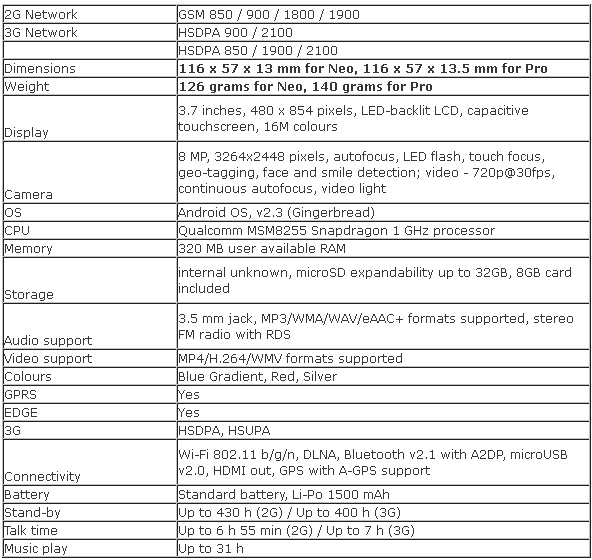
Check out: The all new Gadgets and Gaming page
Reader invite
Are you a gadget/gaming wizard? Would you like to write on gadgets, gaming, the Internet, software technologies, OSs and the works for us? Send us a sample of your writing to gadgetsandgaming@rediffmail.com with the subject as 'I'm a tech wizard' and we will get in touch with you.
HP's two new webOS phones: Pre 3 and Veer
Image: HP's two new webOS phones: Pre 3 and VeerApart from announcing the not-so-imminent mobilization of its iPad killer the HP TouchPad the computer giant also revealed two new smartphones, the HP Pre 3 (left), and the HP Veer (right). Both run webOS 2.2, a newer version of Palm's mobile operating system co-developed by HP when it bought the company in mid-2010. A half-year after the takeover, HP had released the Palm Pre 2 a webOS 2.0 smartphone. Now, three months later, HP has finally dropped the vestigial Palm name in its mobile offerings.
HP Pre 3
The Pre 3 has a nearly identical design and form factor as the earlier two Palm Pre phones, and has a 3.6-inch capacitive touchscreen with 24-bit colour and a 480x800 resolution. It boasts of a 1.4GHz processor from Qualcomm, has 512MB of RAM, and runs on webOS 2.2 (seems like the webOS version naming might follow the Android convention, separating tablets and phones).
It also has a 5MP camera with LED flash capable of 720p HD recording, and a forward facing camera for video-calling. Called a world-phone, it will support both GSM based HSPA+ and CDMA based EVDO Rev A connectivity. It also has Bluetooth v2.1 with EDR and Wi-Fi 802.11 b/g/n connectivity.
Two capacities will be available, 8GB and 16GB.While no pricing details have been revealed, the phone will probably be released this September.
HP Veer
HP went ahead and squished the Palm Pre 2's design, and made the diminutive HP Veer. Featuring a smaller 2.6-inch touchscreen (320x400 resolution) and a small "full-sized" QWERTY keyboard. The Veer has an 800MHz processor (Snapdragon 7230), and 512MB RAM. It supports HSDPA+, as well as Wi-Fi 802.11 b/g/n and Bluetooth connectivity.
It comes with 8GB of inbuilt storage, as well as an accelerometer and light sensor. While no pricing details have been revealed, the phone will apparently be released this "spring", ahead of the Pre 3.
Check out: The all new Gadgets and Gaming page
Reader invite
Are you a gadget/gaming wizard? Would you like to write on gadgets, gaming, the Internet, software technologies, OSs and the works for us? Send us a sample of your writing to gadgetsandgaming@rediffmail.com with the subject as 'I'm a tech wizard' and we will get in touch with you.
Olive's HSPA phone: The Android 2.3 OliveSmart V-S300
Image: Olive's HSPA phoneWhile we did have an inkling of this in advance, we are still a bit awed by the news that Olive Telecom has announced the launch of an Android Gingerbread phone in India, one that apparently is just 9.9 mm thick, and sports HSPA+ (14.4 Mbps) connectivity the OliveSmart V-S300. Olive is calling the device the first HSPA+ smartphone in the country, though we're more excited about it featuring the latest Android phone-specific operating system one that was just introduced with the platform lead device, the Google Nexus S.
On paper the OliveSmart is certainly well endowed, with the "ultra-slim" bodied phone boasting of a 4.1-inch capacitive multi-touch screen with a 800x480 pixel resolution, a 1GHz Qualcomm Snapdragon MSM8255 processor along with the Adreno 205 graphics engine, 512MB RAM and 2GB ROM, a 5MP rear camera (with flash and auto-focus) and front facing VGA camera for video-calling, along with a 1400 mAh battery.
Other features include a dual microphone arrangement for active "Fluence" noise cancellation, 720p HD video recording and playback, 3.5 mm audio jack and HDMI-D port, Wi-Fi and Bluetooth v2.1 connectivity along with DLNA, as well as GPS/accelerometer/ambient light/digital compass sensors, and 2GB onboard storage along with microSD expandability up to 32GB. Add-on features include Live TV (Zenga), document editor, push-email and an e-book reader.
As for availability, the OliveSmart should hit streets in about a month, a couple of weeks after MWC. The early previews of the product revealed it currently runs Froyo, and will get a 2.3 upgrade soon after launch. It will be priced at roughly Rs. 20,000.
Check out: The all new Gadgets and Gaming page
Reader invite
Are you a gadget/gaming wizard? Would you like to write on gadgets, gaming, the Internet, software technologies, OSs and the works for us? Send us a sample of your writing to gadgetsandgaming@rediffmail.com with the subject as 'I'm a tech wizard' and we will get in touch with you.
G'Five Telly series mobile phones will show World Cup 2011 matches live
Image: G'Five Telly series mobile phonesG'Five recently introduced 21 new mobiles into the Indian market here come six more in a launch ahead of the ICC World Cup 2011. Called the Telly series by G'Five, six handsets comprise a range of free-to-air analog TV phones that will allow users to view Doordarshan broadcasts of a large number of World Cup matches all those India plays in, as well as the quarter-finals, semi-finals, and final. They, of course, also offer dual-SIM connectivity.
While many may wonder about buying phones whose singular marketed appeal is the World Cup 2011, the most inexpensive of these phones could still be considered a valuable short-term investment for even those not looking for a new device. The quality of the live feed and pickup has yet to be ascertained, though. The Telly series arguably has other features to offer, of course. They also come with a 500-day warranty.
G'Five G288 & G800: touchscreen (G800), torch light, motion sensor / song changer, voice changer, USB modem, social networking, wireless FM radio player and recorder, video player (3GP/MP4) and recorder, call recording, 4GB expandable memory, etc.,. Price: G288 - Rs. 2,899, G800 - Rs. 2,999
G'Five G602: dual camera with flash, torch light, 4GB expandable memory, music player, video player (3GP/MP4) and recorder, wireless FM player and recorder, call recording, USB modem, phonebook backup, social networking, etc.,. Price: Rs. 5,599
G'Five G269i & G279: QWERTY keyboard, dual camera with flash, wireless FM player and recorder, video player (3GP/MP4) and recorder, motion sensor / song changer, phonebook backup, USB modem, call recording, social networking, etc.,. Price: G269i - Rs. 3,699
G'Five G33: touchscreen, 9 cm display, dual camera and flash, 8GB expandable memory, wireless FM player and recorder, 1100 mAh battery, music player, video player (3GP/MP4) and recorder, motion sensor / song changer, call recording, USB modem, etc.,. Price: Rs. 4,999.
Check out: The all new Gadgets and Gaming page
Reader invite
Are you a gadget/gaming wizard? Would you like to write on gadgets, gaming, the Internet, software technologies, OSs and the works for us? Send us a sample of your writing to gadgetsandgaming@rediffmail.com with the subject as 'I'm a tech wizard' and we will get in touch with you.
Zapak Games launches Cricket Power: The official ICC World Cup 2011 game
Image: Zapak Games launches Cricket PowerZapak Games has released an official ICC World Cup 2011 cricket game, called Cricket Power. Available on zapak.com for download or at gaming CD retail outlets for Rs. 299, Cricket Power allows players to play and build their own World Cup game.
In Zapak's words, if you play with all the participating countries and their assigned teams, and follow the World Cup schedule, then "it's the closest you can come to reality and thus providing a perfect chance for you to bring the World Cup home."
Check out: The all new Gadgets and Gaming page
Reader invite
Are you a gadget/gaming wizard? Would you like to write on gadgets, gaming, the Internet, software technologies, OSs and the works for us? Send us a sample of your writing to gadgetsandgaming@rediffmail.com with the subject as 'I'm a tech wizard' and we will get in touch with you.
Nokia and Microsoft partner to make Nokia Windows Phones and global mobile ecosystem
Image: Nokia and Microsoft partner to make Nokia Windows Phones and global mobile ecosystemPhotographs: Luke MacGregor/Reuters
The internet was abuzz with reports and rumours ever since former Microsoft executive Stephen Elop took the seat of Nokia's CEO. Now, it's official Nokia is partnering with Microsoft to make Windows Phone 7 its "principal smartphone strategy,", and will together "combine assets and develop innovative mobile products on an unprecedented scale."
A strongly worded open letter written by both Elop and Ballmer, as well as a press release from the companies, outlined the strategic alliance's intent, and added that Microsoft services and products like Bing, Xbox Live, and Office, as well as Nokia offerings like Ovi Maps, will also be part of "broad strategic partnership".
While this doesn't exactly signal the end of MeeGo or even Symbian, Nokia has stressed the continued importance of the Qt as the unified development framework for these two platforms, and Microsoft's free Windows Phone Developer Tools will be used for upcoming Nokia Windows Phone devices. Microsoft has also offered "guidance" to developers interested in porting their apps for WP7, making evident no Qt tie-in to WP7 APIs. The integration, or dissolution, of the Ovi Store into the Microsoft Marketplace might just hold some interesting opportunities for developers, effects we are bound to start seeing soon.
A letter to Nokia app developers assured them of a continued future for the Qt-based platforms, with news of plans to sell "around 150 million more Symbian devices", and of the first MeeGo-related open source device shipping later this year.
Check out: The all new Gadgets and Gaming page
Reader invite
Are you a gadget/gaming wizard? Would you like to write on gadgets, gaming, the Internet, software technologies, OSs and the works for us? Send us a sample of your writing to gadgetsandgaming@rediffmail.com with the subject as 'I'm a tech wizard' and we will get in touch with you.
Microsoft launches Internet Explorer 9 Release Candidate (download)
Image: Microsoft launches Internet Explorer 9Photographs: Robert Galbraith/Reuters
Internet Explorer 9 Release Candidate is available for download right now, ready to show you the Beauty of the Web, and you can find it here or here. Meant only for Windows Vista and 7, the IE9 RC will not work on XP or below. Check it out, and let us know what you think in the comments section below!
The new interface and framework boasts of a host of major and minor improvements, from hardware acceleration of multimedia and Flash content to enhanced tab layouts, a faster Javascript engine to toggle-able ActiveX filters, native HTML5 support as well as geolocation support, apart from customizable Tracking Protection lists, web app and website taskbar pinning, One Box, and more.
According to Microsoft, over 25 million beta testers helped out with the testing process that lasted months. They received over 17,000 "pieces of feedback", more than all the feedback for the "entire development life cycle of IE8." Let's see if all that was worth it!
Check out: The all new Gadgets and Gaming page
Reader invite
Are you a gadget/gaming wizard? Would you like to write on gadgets, gaming, the Internet, software technologies, OSs and the works for us? Send us a sample of your writing to gadgetsandgaming@rediffmail.com with the subject as 'I'm a tech wizard' and we will get in touch with you.
Mozilla Firefox 7 coming this year
Image: Mozilla FirefoxIt seems Mozilla has been inspired by more than just Chrome's UI! According to the new roadmap laid out by Mozilla for the year 2011, Firefox 4 is just the first "major" release to come this year, and will be followed in quick succession by Firefox 5, 6 and 7 all releasing in 2011.
This 3-month release cycle is similar to the model Google Chrome used to follow, and abandoned for an even faster 6-week release cycle.
This might seems kind of odd since Firefox 4 has been in beta longer than 3 months! However this perhaps is the point, to have fewer features delivered faster rather than many features delivered after long waits and extended beta testing periods.
Other than just the dry fact that there will be 4 FIrefox releases in 2011, Mozilla has also revealed some information about what direction these releases will take. The priorities for Firefox 4 remain the same, and some basic targets such as making Firefox more responsive ‒ such that the delay between a click and action should never be more than 50ms ‒ improving stability, and performing "optimizations to hide network latency " shall continue to be important even after Firefox 4.
Mozilla also has plans for some major new features throughout the year (according to the Mozilla Firefox roadmap
Firefox 5:
- Account Manager
- Simple Sharing UI
- UI Animation
- 64 Bit on Windows
Firefox 6:
- Web Applications
- FasterCache
- OSX 10.7
- JS Optimizations
Firefox 7:
- Electrolysis
- deXBLification
Of course these releases are still a little far away, and the immediate goal is Firefox 4. The roadmap is likely to change, and in fact the Firefox 7 is still tentative (with "?" marks after the features).
Some of these features such as simple sharing are already available in the form of add-ons. The F1 project by Mozilla Messaging makes it easy to share links from Firefox by connecting to a variety of services. This is similar to how Firefox Sync and FIrefox Panorama, both integral parts of FIrefox 4 initially emerged as add-ons. The account manager too is available as an add-on and was initially a part of Weave itself ‒ more information on account manager is available here.
64-bit builds for Windows are already available for pre-release versions of Firefox, and with Firefox 5 will probably be a part of the stable release.
The Web Applications standard that Mozilla plans to integrate in Firefox 6 is also available for public perusal.
Electrolysis (e10s) is Mozilla's project to make Firefox run each tab and add-on in a separate process to make to less crash-prone and more secure.
2011 seems like a big year for Mozilla; Firefox 4 is already one of their most significant releases, and it seems that Mozilla has significant changes planned this year. After unsettling Internet Explorer over the last few years, Mozilla now has new challenges to face, and it seems to be taking the best lessons from how other browsers work. In true open source fashion, by not solving a problems that has already been solved.
Check out: The all new Gadgets and Gaming page
Reader invite
Are you a gadget/gaming wizard? Would you like to write on gadgets, gaming, the Internet, software technologies, OSs and the works for us? Send us a sample of your writing to gadgetsandgaming@rediffmail.com with the subject as 'I'm a tech wizard' and we will get in touch with you.
HP's consumer-focussed webOS tablet: The TouchPad
Image: HP's TouchPadHP's webOS press conference had quite a few revelations in store, the biggest being details of its long-awaited offering into the consumer tablet market the HP TouchPad. Sporting a 9.7-inch screen, the 13 mm thick TouchPad offers an XGA resolution at 1024x768 pixels, and weighs in at 740 grams all of which, as well as the tablet's curved edges, neatly position it alongside the current generation iPad.
The TouchPad runs HP's latest version of Palm's mobile operating system webOS 3.0 which is Flash compatible. It's powered by a dual-core processor, a Qualcomm Snapdragon APQ8060 running at 1.2GHz. Surprisingly, it has just 512MB RAM. Two capacities are on offer, 16GB and 32GB, and its 6300 mAh is rated to provide up to eight hours of battery life. It offers microUSB, Bluetooth v2.1 with EDR and Wi-Fi 802.11 a/b/g/n connectivity. 3G and 4G models are also in the pipeline. The display has a Gorilla Glass screen, and supports capacitive multi-touch input.
The tablet also has a 1.3MP front facing camera, integrated stereo speakers, a gyroscope and accelerometer, as well as A-GPS support (in the 3G model). As for app availability, HP is offering an almost nascent realm of 8,000 apps, of which legacy webOS applications will run limited to non-fullscreen mode on the TouchPad. All the popular ones will be ready by the time the tablet arrives though from Facebook to Angry Birds to Kindle. Beats By Dre is also pre-loaded.
The TouchPad also synchronises with the Palm Pre 3, one of the three webOS new devices introduced at the event - alongside the TouchPad and the HP Veer. Apart from standard data sync with the tablet, users will also be able receive calls and messages on the TouchPad. Also, when used in conjunction with the right HP printer, the tablet can print wirelessly.
HP has also hinted that it would be bringing the touch-friendly webOS to upcoming TouchSmart PCs, and maybe, even a line of netbooks. No pricing was indicated, the TouchPad only looks to launch sometime in September. Read our report on the HP Pre 3 and Veer for more coverage on the two other webOS 2.1 devices announced at the conference.
Check out: The all new Gadgets and Gaming page
Reader invite
Are you a gadget/gaming wizard? Would you like to write on gadgets, gaming, the Internet, software technologies, OSs and the works for us? Send us a sample of your writing to gadgetsandgaming@rediffmail.com with the subject as 'I'm a tech wizard' and we will get in touch with you.

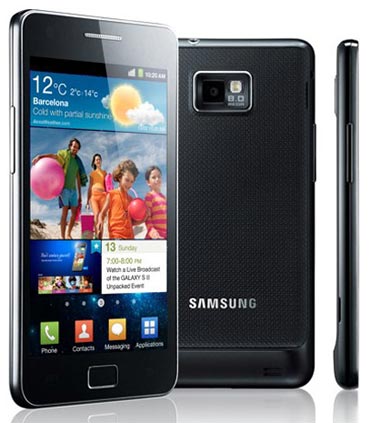

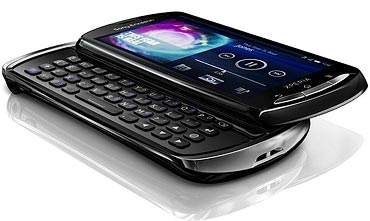
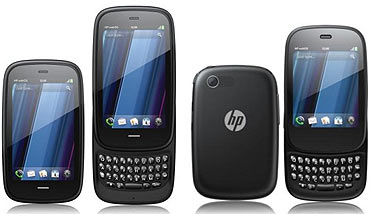
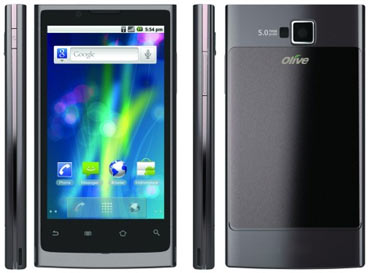
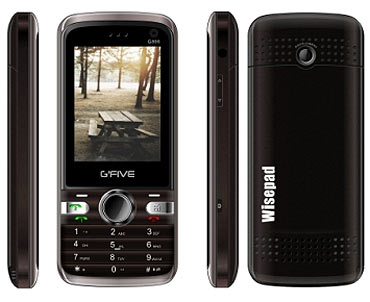
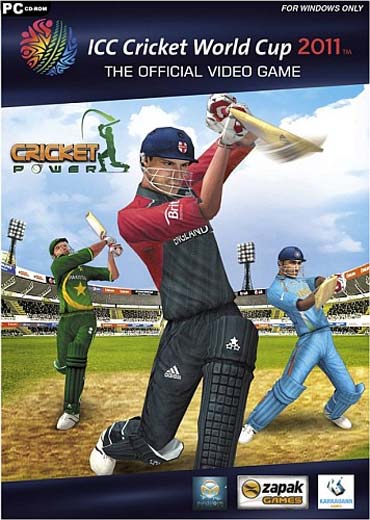
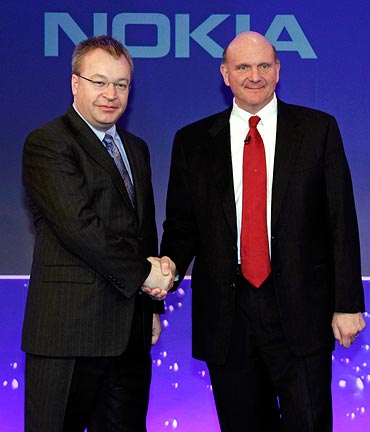

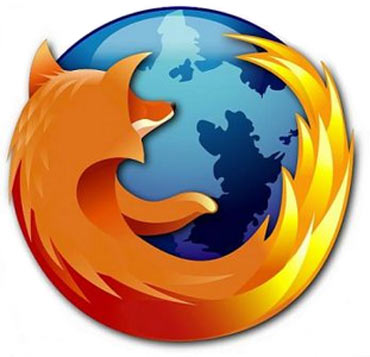
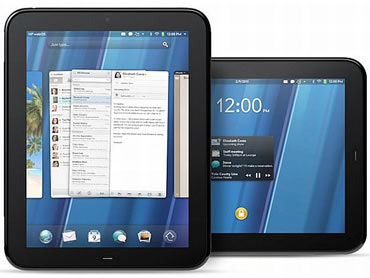
Comment
article